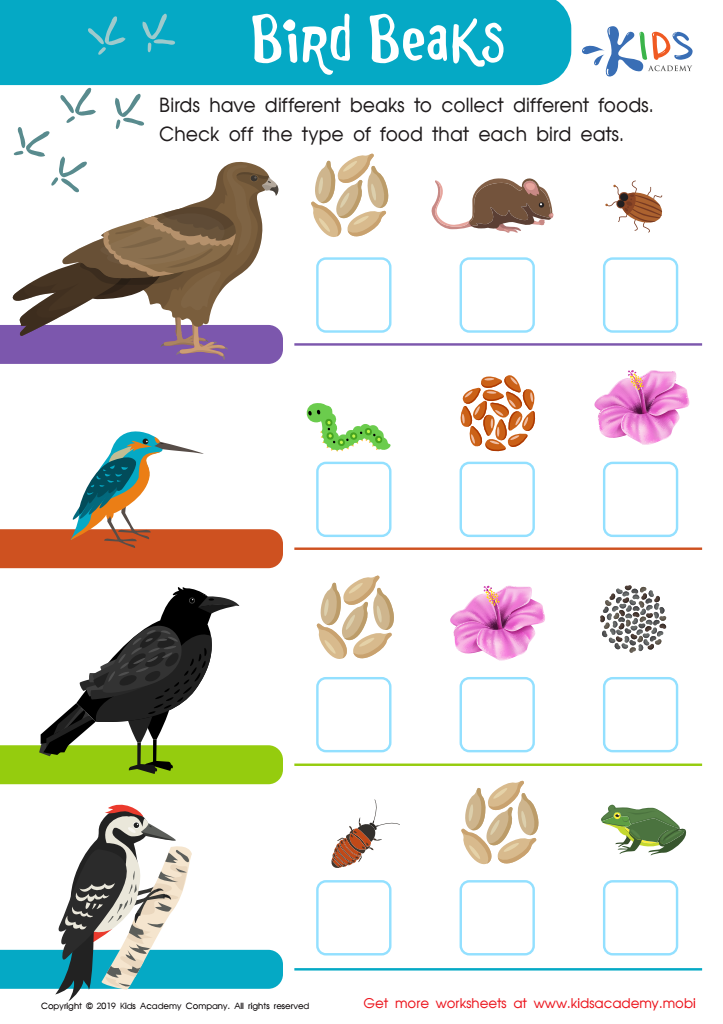Classification skills Normal Science Worksheets for Ages 6-7
4 filtered results
-
From - To
Enhance your child's critical thinking and scientific understanding with our Classification Skills Normal Science Worksheets for ages 6-7! Designed to align with early grade Curricula, these worksheets make learning fun and engaging through hands-on activities. Kids will develop essential skills by sorting and grouping objects, recognizing patterns, and categorizing living and non-living things. Perfect for nurturing young scientists, our worksheets offer a solid foundation in classification, promoting analytical skills early on. Ideal for home or classroom use, each activity is crafted to spark curiosity and foster a love for learning. Download now and watch your child thrive!


Matter: Assessment 1 Worksheet


Bird Beaks Worksheet


Animals and Plants: Assessment 2 Worksheet


Space: Assessment 2 Worksheet
Classification skills are fundamental for young children's cognitive development, and no one is better positioned to support this than parents and teachers. These skills enable kids aged 6-7 to categorize objects, ideas, and information based on shared characteristics. By learning to classify, they can make sense of the world around them, honing their ability to observe, compare, and differentiate.
In the realm of normal science, classification helps children understand and apply scientific concepts. For example, sorting objects by size, color, shape, or type lays the groundwork for grasping more complex scientific ideas later on. This foundational skill aids in organizing information systematically, making learning more efficient and engaging. For instance, recognizing that mammals and reptiles belong to different categories promotes an early appreciation for biology's complexity.
Moreover, classification skills cultivate critical thinking and problem-solving abilities. As children practice sorting and grouping, they develop the capacity to draw connections and see patterns—skills that are transferable to mathematics, language arts, and beyond. Enhanced focus and attention to detail at an early age pave the way for academic success across all subjects.
Parents and teachers who emphasize classification skills foster an environment where curiosity thrives, setting young learners on a path to lifelong learning and exploration. These abilities not only enrich their understanding of science but also empower them to approach daily situations with an analytical and organized mindset.
 Assign to My Students
Assign to My Students



















